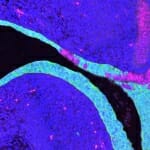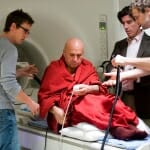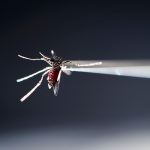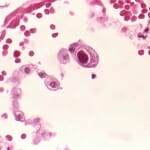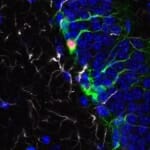Tag Research
Eating crickets can be good for your gut, according to new clinical trial
The study shows consuming crickets can help support the growth of beneficial gut bacteria, and that eating crickets is not only safe in large amounts but may also reduce inflammation in the body. Read More
Cellular communication system in mice helps control female fertility
UW-Madison researchers have discovered that two genes work together to construct a cellular communication system in the ovaries of mice to maintain healthy eggs. Read More
The bladder can regenerate like nobody’s business and now we know why
New research from the UW–Madison School of Veterinary Medicine shows that non-bladder cells from a nearby anatomical structure called the Wolffian duct can actually help the bladder mend itself. Read More
Meditation affects brain networks differently in long-term meditators and novices
UW-Madison researchers examined brain activity in non-meditators, new meditators, and long-term meditators, and they discovered differences in emotion networks of the brain among these groups. Read More
Can plants and trees change the weather?
An array of towers, aircraft and researchers will keep watch over the Chequamegon-Nicolet National Forest in northern Wisconsin, focusing on an area from a region of the country sensitive to changes in climate. Read More
Data Science Initiative supports faculty research
Ten highly innovative projects, addressing such diverse topics as the microbiome, climate change, limnology, Alzheimer's disease, genomics and math, have been chosen to receive funding. Read More
Study suggests buried internet infrastructure at risk as sea levels rise
The most susceptible U.S. cities are New York, Miami and Seattle, but the effects would ripple across the internet — potentially disrupting global communications. Read More
Finding a weak link in the frightful parasite Schistosoma
More than 250 million people, mostly in Africa and Asia, have schistosomiasis, which kills an estimated 280,000 each year. “We don’t get that many aha! moments in our lives as scientists,” says a researcher. “This was one of them.” Read More
In a warming world, could air conditioning make things worse?
A team of UW–Madison researchers forecasts as many as a thousand additional deaths annually in the Eastern United States alone due to elevated levels of air pollution driven by the increased use of fossil fuels to cool the buildings where humans live and work. Read More
Zika virus infection may multiply risk of miscarriage, stillbirth
Researchers at six National Primate Research Centers (NPRCs) combined results from individual studies to find that 26 percent of pregnancies in 50 monkeys infected with Zika virus during the first trimester of pregnancy ended in miscarriage or stillbirth. Read More
Cell therapy is the future, and Wisconsin is the place, UW–Madison expert tells Technology Council
UW–Madison has doctors willing to guide the studies that will make or break cell therapy companies. “If you are a clinician, you need a pioneer spirit to do something that has never been done before,” Jacques Galipeau says, “and there are already many like that here.” Read More
Study points researchers toward new therapies for fragile X syndrome
A UW–Madison study showed that the absence of the protein FMRP can unbalance critical molecular processes within adult brain cells and lead to the neural and cognitive changes seen in fragile X. Read More




